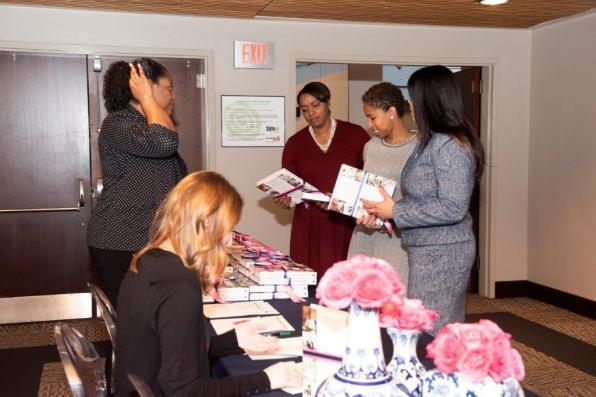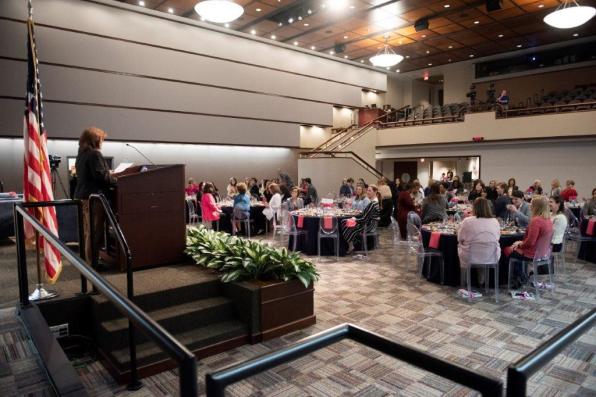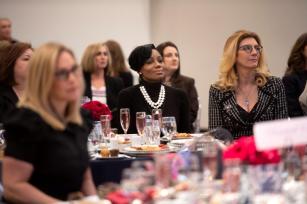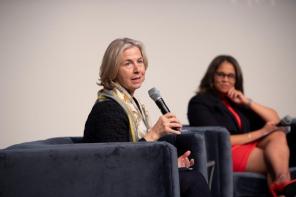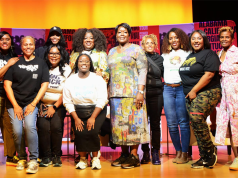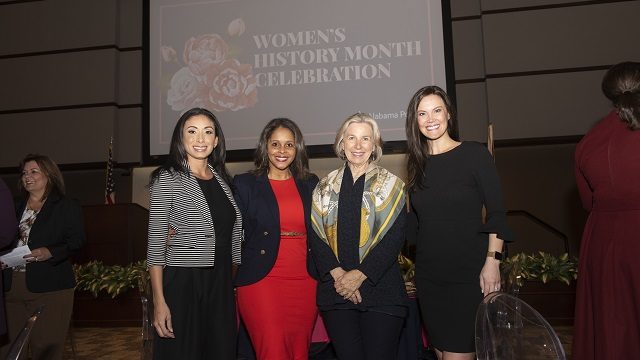
By Erin Harney
Alabama Newscenter
To commemorate Women’s History Month, Alabama Power hosted a panel discussion Friday on workforce development with Birmingham leaders Melanie Bridgeforth, CEO of the Women’s Fund of Greater Birmingham; Yazmin Cavale, CEO/co-founder of Glow; and Britney Summerville, vice president of community engagement at Shipt.
“Today, we are here to celebrate Women’s History Month,” said Cathy Sloss Jones, panel moderator and CEO/president of Sloss Real Estate. “We are here to celebrate the contributions that women have made to the workplace here in Alabama and continue to make every day in workplaces throughout our state.”
The discussion focused on inclusion, workforce development, work-life balance, mentoring, giving back to the community and Birmingham revitalization.
“I feel like Birmingham is in this neat phase right now, and we’re all getting to experience it, we’re kind of in a resurgence,” Summerville said. “(We’re) definitely getting on the map in terms of technology, that is something that we’ve never been known for before.”
Partnerships between city officials and companies like Shipt work “to grow and improve the image of the city, to retain the talent that we have, (and) to also attract new people to our city, and say ‘this’ is Birmingham,” Summerville continued. “You can grow and scale your business beautifully here.”
For Cavale, who co-founded her company as part of the Velocity Accelerator program, increasing the number of women in technology is an important goal.
“There’s definitely something out there in society that’s telling women that tech is really just for men,” Cavale said. “That developers, engineers can’t be women. I think we need more events like this that are focused on women and entrepreneurship … and specific tech programs for women and girls.”
The Women’s Fund of Greater Birmingham hopes to be part of the change. According to Bridgeforth, less than 7 percent of philanthropy in the U.S. targets women and girls.
“Nearly half of the women with children in Alabama live in poverty; that’s less than $22,000 a year,” Bridgeforth said. “So, when you compare that and combine that with the fact that less than 7 percent of giving is targeted toward the populations that need it most, that’s a problem.”
Working toward a solution, the Women’s Fund of Greater Birmingham has been investing in Alabama’s community college system.
“We’ve been investing our funding in those programs, so that they can find women who need the opportunity for advancement but don’t have the funds,” Bridgeforth said. The initiative has been so successful that they’re now seeking public dollars to invest and promote multigenerational change on a larger scale.
“In order to be able to lift all ships, you have to be targeted – you have to think about the people that are most vulnerable,” Bridgeforth said. “Equality is no longer an option, we have to be fighting for equity.”


